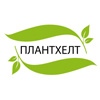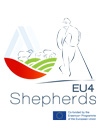The European Commissioner Iliana Ivanova at a work meeting at the Agricultural University of Plovdiv
 17.11.2023
17.11.2023
The European Commissioner for Innovation, Research, Culture, Education and Youth Iliana Ivanova held a working meeting in Plovdiv with the regional innovation ecosystem. The initiator and host of the roundtable was the Agricultural University of Plovdiv and the theme of the meeting was the European Commission's initiative on Regional Innovation Valleys and the partnership between education, science, and business.
"I am very pleased to be in Plovdiv today to personally meet with the local ecosystem, to discuss substantive issues and to talk about specific actions. Regional Innovation Valleys are a hot topic in Brussels, with 100 million euros earmarked for the development of a hundred Regional Innovation Valleys in Europe. Bulgaria has two approved candidates - from the Plovdiv region and the Northwest region. That's why I'm here - to discuss together how I can help at the European level."
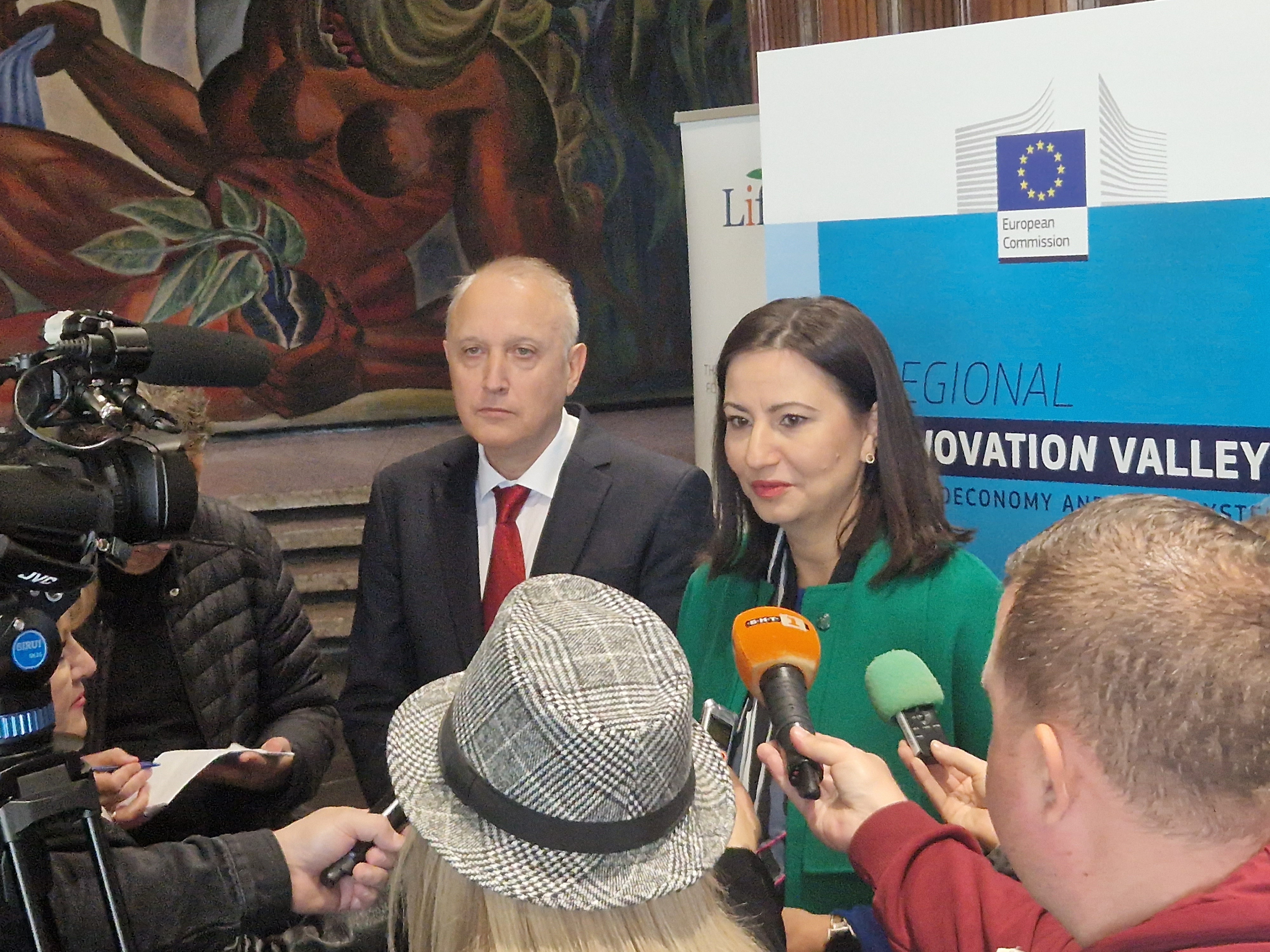
The Rector of the Agricultural University of Plovdiv, Prof. Hristina Yancheva, and the Deputy Rector for Science and Projects Prof. Vladislav Popov, welcomed at the working meeting the Deputy Minister of Education and Science Prof. D.Sc. Genka Petrova. Also present were the Regional Governor of Plovdiv Iliya Zyumbilev, the newly elected Mayor of Plovdiv Municipality Kostadin Dimitrov, the Chair of the Agricultural Academy Prof. Violeta Bozhanovа, deputy rectors of Plovdiv higher education institutions, representatives from the Ministry of Agriculture, scientific centers, the management of the Trakia Economic Zone, industry associations, startups, and non-governmental organizations.
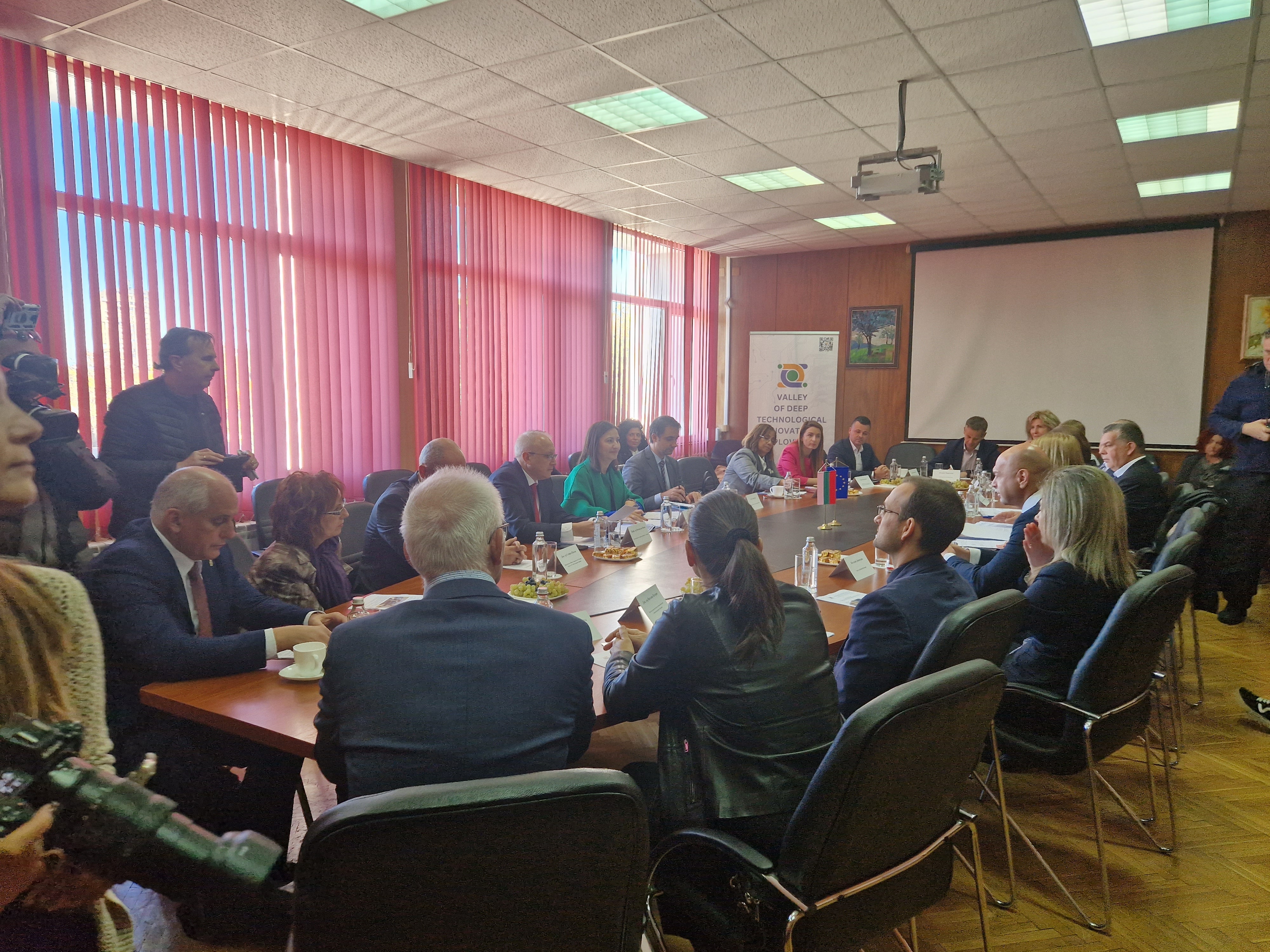
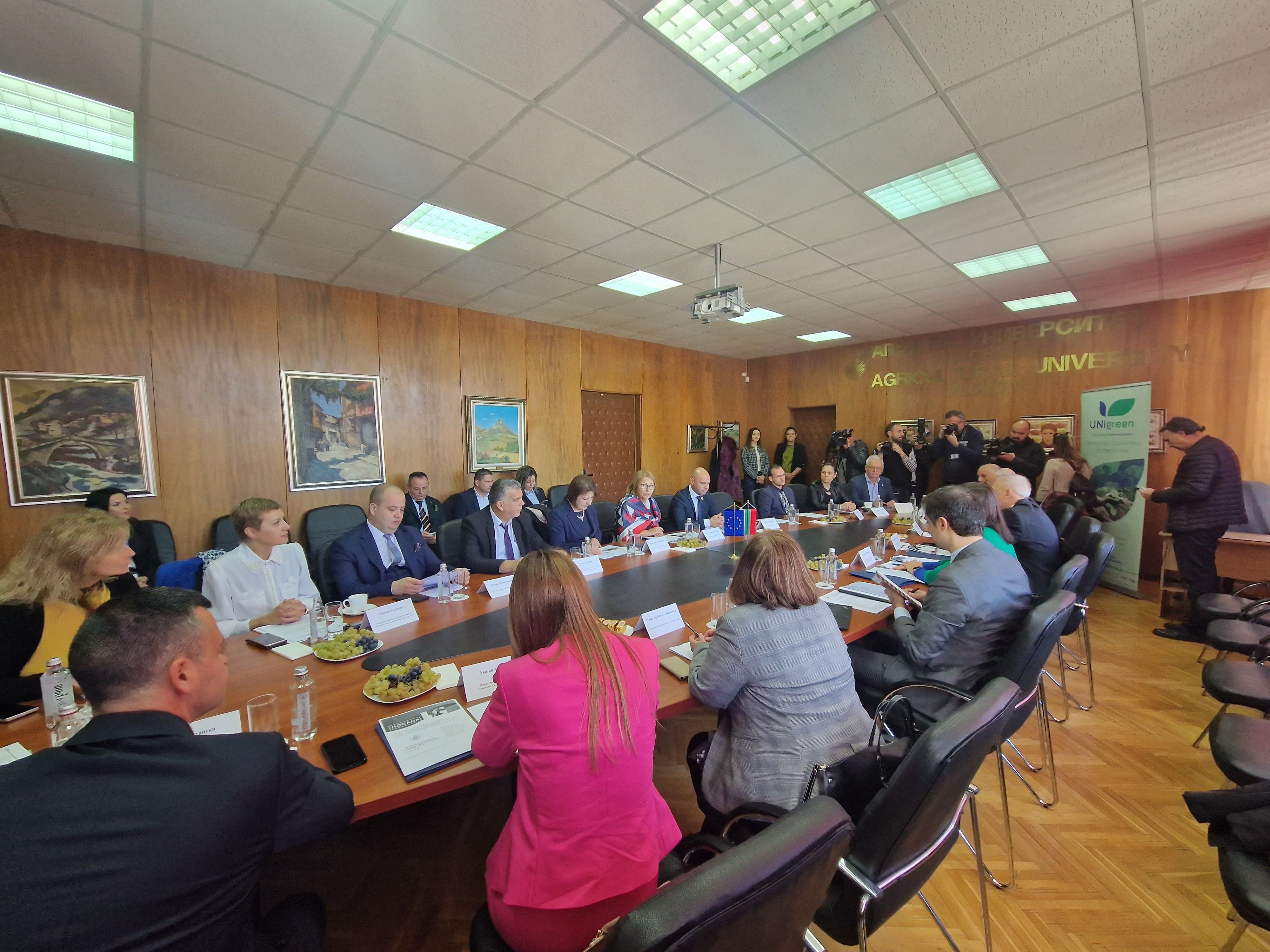
Commissioner Ivanova emphasized that Regional Innovation Valleys envision close collaboration between business, education and science, aiming to catch up with the developmental lag of certain regions in Europe. She stated, "We are trying in every way to stimulate and support the convergence of regions not only through cohesion policy but also with programs like this." Ivanova sees this as a fantastic opportunity, highlighting the excellent scientific research communities, universities, and businesses in Plovdiv. She mentioned that the Western Balkans are the subject of serious debates in the European Commission, focusing on strengthening support for innovation, education, and scientific research. Apart from "Horizon Europe," there are many other EU programs, structural funds, national and local funding. The goal of these Regional Innovation Valleys is to provide a platform for exchange and seek additional funding opportunities.
Commissioner Ivanova expressed the opinion that the development of Regional Innovation Valleys is the future because even strong innovators cannot compete on the international stage independently- they need to work together. She commented that the European Commission is working on simplifying procedures to make them more accessible.
Deputy Minister Petrova assured that the Ministry of Education and Science supports all initiatives of the European Commission and promised more in-depth work from the ministry. She emphasized the need to give way to excellent young Bulgarian scientists in Europe, connecting them with scientific centers and businesses.
Maria Hristova from the Ministry of Agriculture, also a member of the Regional Innovation Scheme Policy Council at EIT Food, noted the necessity of building capacity for partnerships at the national and European levels to apply for EU projects. She highlighted the innovative young people in Bulgaria who need support, professional orientation, and connection with scientific centers and businesses.
Prof. Vladislav Popov, also the hub manager of EIT Food Bulgaria, added that the European Institute of Innovation and Technology in Food offers good opportunities for professional training and financing for young entrepreneurs in the agri-food sector. However, an integrated national approach is needed to connect the three main pillars - education, science, and business.
As a successful example of collaboration, Prof. Popov mentioned the recently approved joint project for the Center of Competence "Agri-food Systems and Bioeconomy." This collaboration includes the University of Food Technologies - Plovdiv, the Agricultural University of Plovdiv and the Agricultural Academy. The aim is to create a modern multidisciplinary scientific complex with distributed research infrastructure in the field of agroecology, plant health, precision plant breeding and food processing, supporting the transition to a sustainable system for the production of bioresources and quality, healthy food, and circular bioeconomy.
Prof. Bozhanovа pointed out that the multidisciplinary teams in which the Agricultural Academy participates make many scientific developments that can easily enter agriculture as innovations. She emphasized that financial support from the state and the EU is a crucial factor for such success.
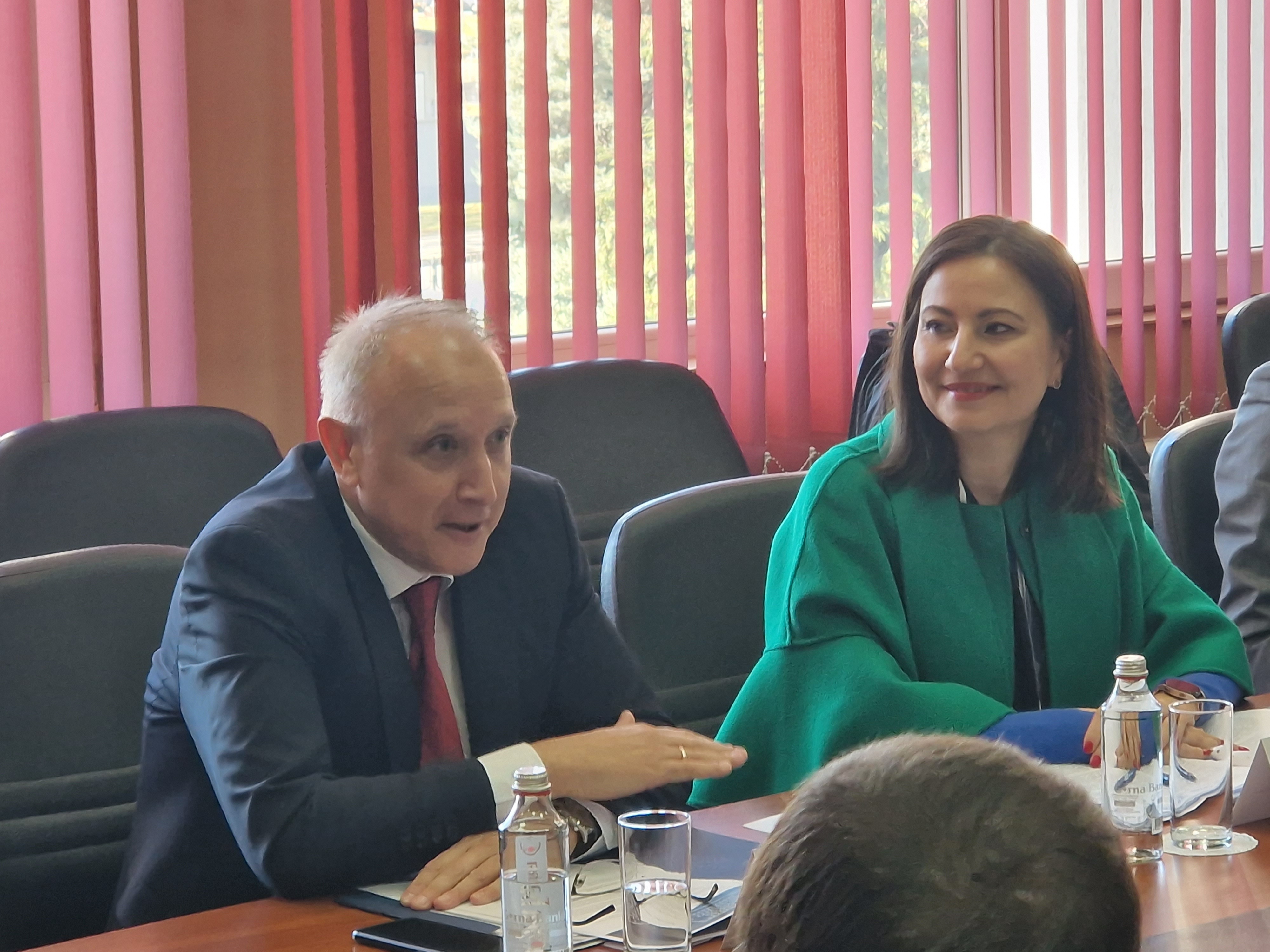
Regarding the modernization of educational programs, Prof. Hristina Yancheva highlighted the successful experience of European alliances - associations of European universities from different countries focusing on thematic areas. The Agricultural University of Plovdiv is a partner in the UNIgreen alliance, the first "green" European university in agricultural, biotechnological, and natural sciences. Commissioner Ivanova added that the European Commission strongly encourages and finances the creation of European alliances, which will be a major priority for the Commission in the future. She encouraged the higher education institutions in Plovdiv to seek opportunities to join future alliances.
Addressing the rapid industrial development in the Plovdiv region, growing investments, and the opening of many new jobs, Katya Staykova from the Trakia Economic Zone shared her perspective. However, she identified the lack of connectivity and synergy between education, science, and business as a significant problem. Staykova emphasized that technological transfer, innovative and scientific developments and expert labor often lack integration into business processes due to a lack of communication and a national strategy to connect these elements. Xavier Marsenak, the founder of the startup for alternative proteins "Nasekomo," provided a successful example of investments from European funding and synchronization of the three pillars (education, science, and business).
Commissioner Ivanova urged all present to meet more often and work together because the region has great potential. She stated that the European Commission supports developing regions, emphasizing the importance of local-level partnerships. She called on local and state authorities to become more involved in current and future processes, and for businesses to invest more boldly in scientific activities. Commissioner Ivanova assured participants that she would work persistently until the end of her mandate in the interest of the country.
After the meeting, Commissioner Ivanova toured the campus of the Agricultural University, spoke with students and faculty and congratulated them on their efforts. She visited a laboratory for plant biotechnology, equipped with modern apparatus for accelerated plant propagation and in vitro cultivation. Commissioner Ivanova learned that the laboratory has developed and successfully applied systems for regenerating field crops and fruit species, vines, and ornamental plants. The results of scientific research from two European projects were also demonstrated - oil extracted from camelina field crops, which were studied and tested at the Agricultural University of Plovdiv. The research, funded by the EU, focuses on preserving and optimizing biodiversity in agrovalleys through the cultivation of alternative crops such as camelina and carinata, known for their adaptability to stress and high-quality production. In the context of climate change and the increasing demand for functional foods to improve human health, such research enables farmers to improve the agriland's conditions and achieve sustainable realization of various plant products, participating in more circular bioeconomy chains.
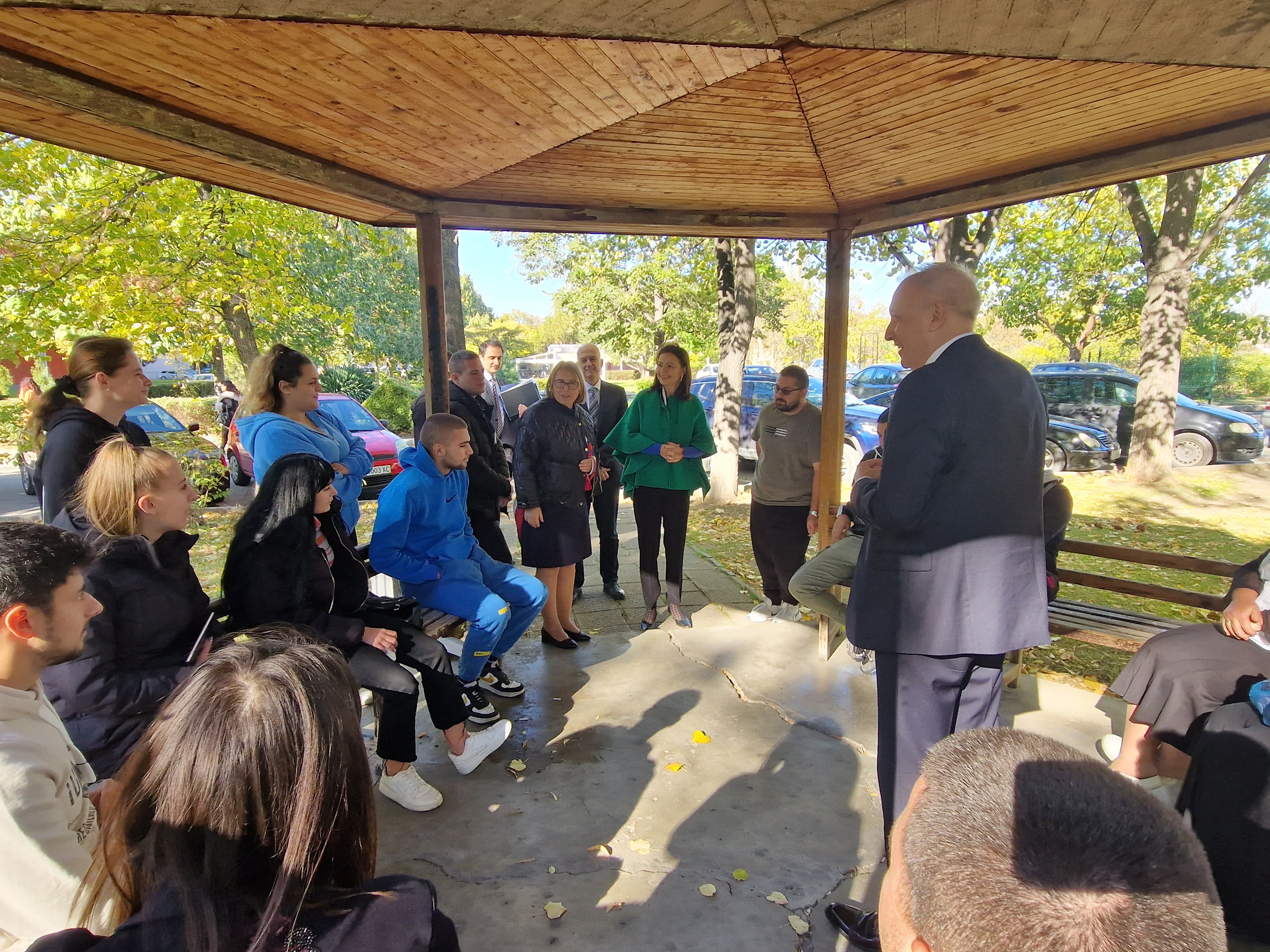
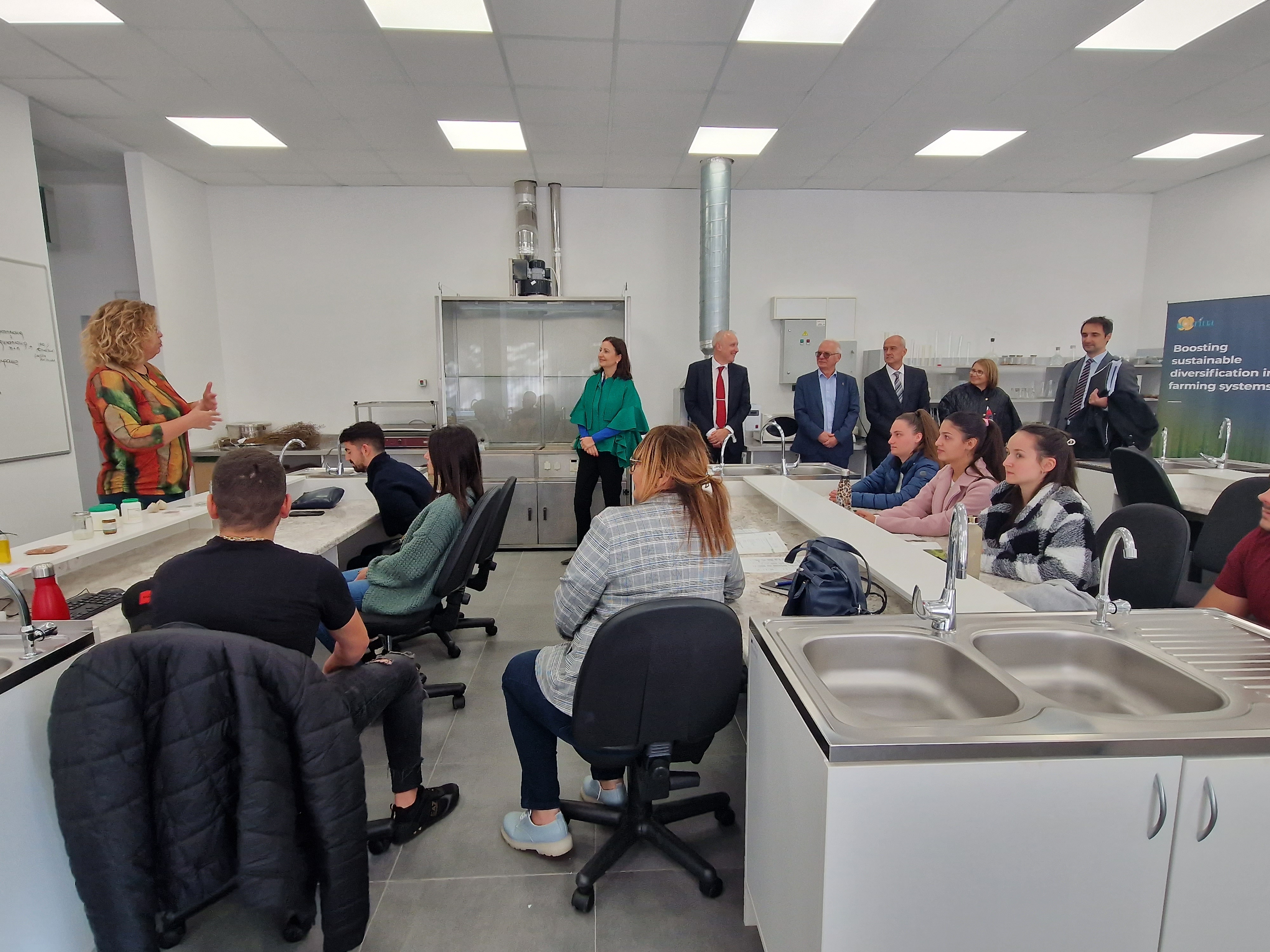
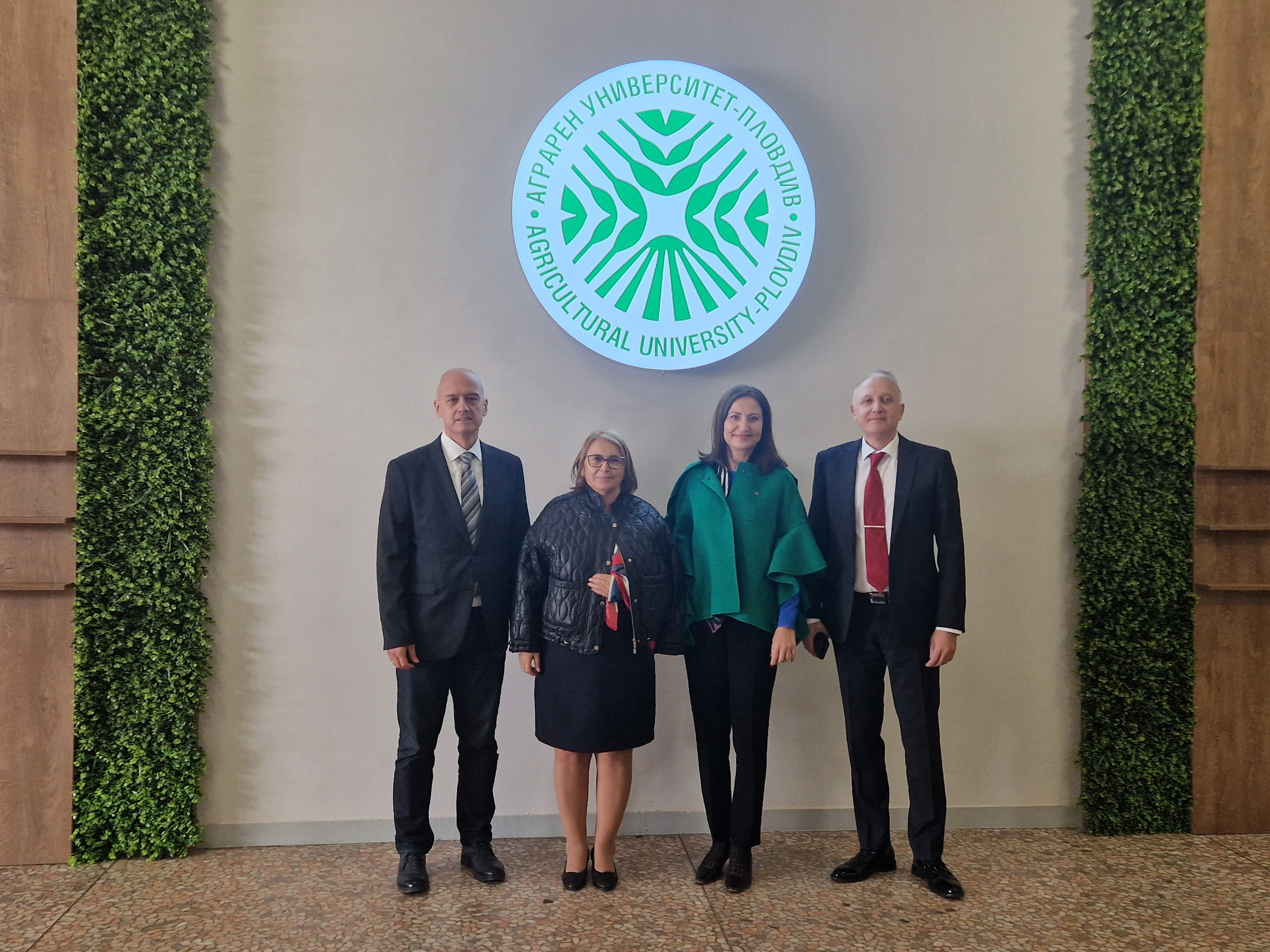
 - Events on the occasion of the 80th anniversary of AU
- Events on the occasion of the 80th anniversary of AU
